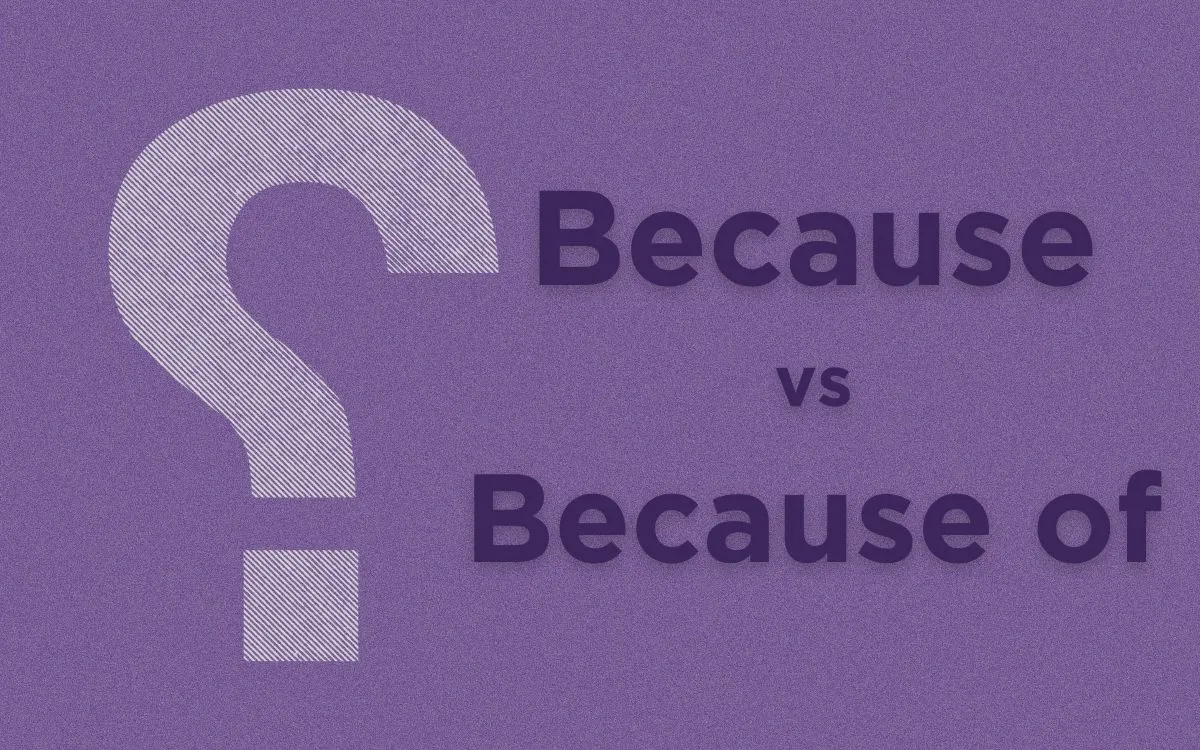
Difference between because and because of.
'Because' and 'because of' are often confused by learners. Both are used to introduce the reason or reasons for something, but grammatically their usage is different.
Because
'Because' is a subordinating conjunction. It is typically followed by a subject and a verb, introducing a clause of cause and reason, which needs a main clause to make a sentence complete. Synonyms for 'because' include 'since', 'as', and 'due to the fact that'.
・He missed the bus because he overslept.
・She's happy because she passed her exams.
・"Why didn't you call me?" "Because I was busy."
・I didn't go to the party because I was feeling unwell.
・I wear this outfit simply because I think it's comfortable.
We use a comma when the subordinate clause (including because) comes before the main clause.
・Because it was raining, I stayed indoors.
・I am staying indoors because it's raining outside.
Typically, commas are not used before 'because'. However, if the 'because' subordinate clause feels like extra information, a comma is possible.
・I smiled because I saw something funny.
('Because I saw something funny' is an essential part of this sentence. It emphasizes the reason that 'I smiled'.)
・There are still many options available, because the market is performing well.
(You just want to emphasize that 'there are still many options available' and then give the reason as bonus information. However, if you want to emphasize the reason, the comma can be removed in this sentence.)
Because of
'Because of' is a two-word preposition. It is followed by a noun, noun phrase, pronoun, gerund, or gerund phrase. Synonyms for 'because of' include 'due to', 'as a result of', and 'on account of'.
・The traffic was heavy because of the accident.
・He got a promotion because of his hard work.
・Because of you, I learned to believe in myself.
・They lost the game because of poor teamwork.
・She's staying fit because of running regularly.
'Because' vs 'Because of'
Because and because of are both used to introduce reasons. Because is a conjunction, and is followed by a subject and predicate which form a complete sentence. Because of is a preposition, and is followed by a noun, pronoun, or verb + -ing which is a single word or phrase.
・I couldn't hear you because the music was loud.
・I couldn't hear you because of the loud music.
・She was upset because she lost her phone.
・She was upset because of losing her phone.
Common Mistakes
|
✔︎ He didn't go to school because he felt sick. ✔︎It happened because of her/him. ✔︎They couldn't go on vacation, because of not having enough money. |


